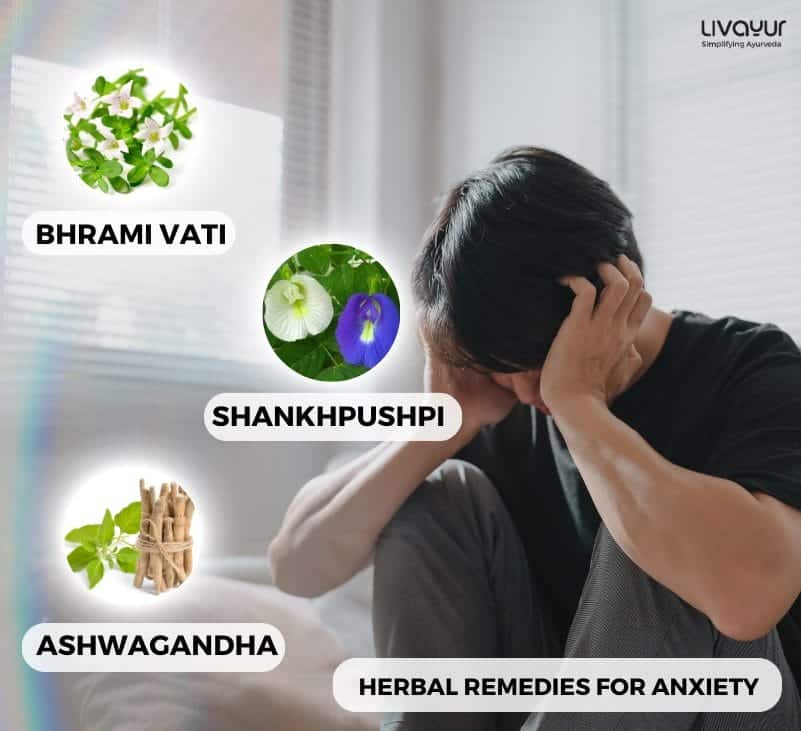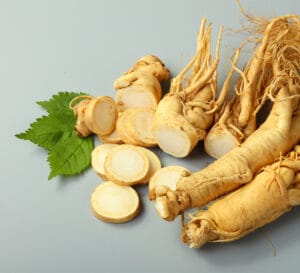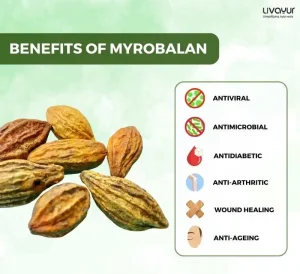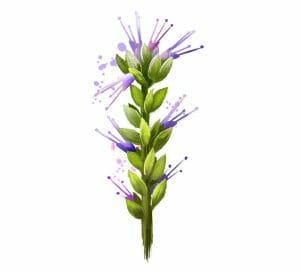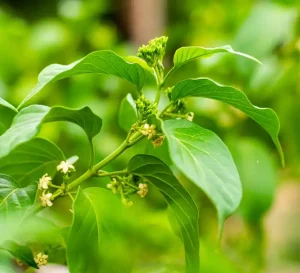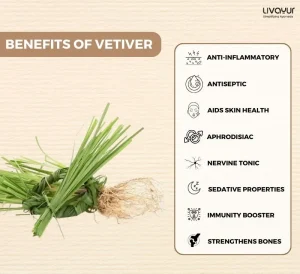This article is reviewed by an expert
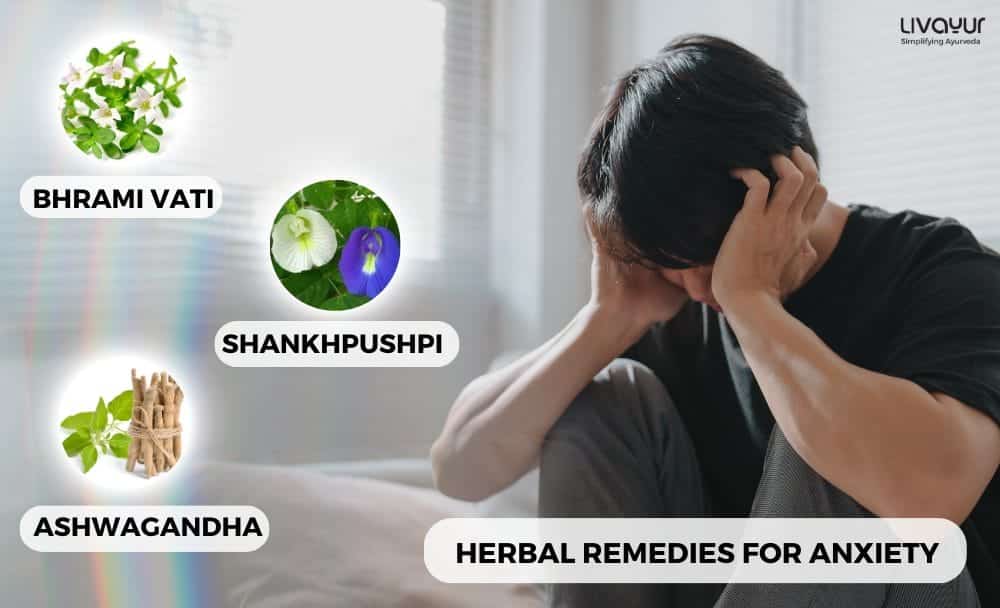
Anxiety, fear, and worry are all completely natural human feelings. If these feelings occur and endure for an extended period, it affects both physical and mental health, leading to clinical anxiety disorders. [1]
What is Anxiety?
Anxiety or Chittodvega may be defined as apprehension, tension, or uneasiness that stems from the anticipation of danger, which may be internal or external. [2] Anxiety disorder or Generalized anxiety disorder (GAD) usually involves a persistent feeling of anxiety or dread, which can interfere with daily life. It is not the same as occasionally worrying about things. People living with Anxiety disorder experience frequent anxiety for months if not years. [3]
Implications of Anxiety
Anxiety is implicated in a number of psychiatric disorders, such as depression, anxiety attacks, phobias, generalized anxiety disorder, obsessive-compulsive disorder, and post-traumatic stress disorder. [1] The lifetime prevalence of anxiety attacks (a form of anxiety disorder) is around 7-9% in most countries and 1% alone in India. [1]
Symptoms of Anxiety
According to Ayurveda, anxiety disorder symptoms are often accompanied by physical sensations such as:
- Palpitations
- Nausea
- Chest pain
- Shortness of breath
- Diarrhoea
- Chills
- Dryness of mouth
- Abdominal pain
- Headache
Somatic symptoms of an anxiety attack may include pale skin, sweating, trembling, and pupillary dilatation. [4]
Causes of Anxiety
Based on the clinical presentation, Anxiety disorders are generally caused by vitiated Vata-Pitta dosha kopa. <[5] The following factors are believed to play an essential role in the occurrence of this disease. [4]
1. Genetics and hereditary causes
Twin studies have reported high genetic correlations between GAD and several dimensional traits related to GAD. [6]
Chances that you may have/develop anxiety disorders are prevalent if a close family member has them too.
2. Hormonal/biochemical imbalance
There is evidence that dopamine plays an important role in anxiety modulation in different parts of the brain. Both dopamine D1 and D2 receptor mechanisms are important in mediating anxiety. [7]
3. Personality type
Certain personalities are more prone to anxiety development, e.g. people with low self-esteem and poor coping skills. The personality type can be due to social factors like peer pressure, isolation, social abuse, etc. This usually triggers social anxiety.
Treatment of Anxiety Disorder
Ayurveda focuses on the interconnectedness of the mind, body, and spirit. There are a variety of natural treatments that can ensure the management of anxiety disorder symptoms and improve the overall mental health of an individual.
Anxiety disorder treatment usually includes dietary changes, herbal remedies, yoga, meditation, and lifestyle modifications. Here are some of the common Ayurvedic approaches to treating anxiety disorder:
1. Herbal Remedies
Some common herbs used in Ayurvedic treatments for anxiety include Ashwagandha, Brahmi vati, and Shankhpushpi. These herbs have a calming effect on the mind and body, reducing stress and anxiety.

Ashwagandha has antioxidant and anti-inflammatory action. It also modulates the effects of several neurotransmitters in the brain and attenuates the laboratory and clinical indices of stress and anxiety. [8]
Brahmi vati is a commonly used Ayurveda medication by Ayurveda clinicians in the management of anxiety disorders. Brahmi vati has various ingredients that have psychotropic, and nootropic effects. [9]
Shankhpushpi possesses nootropic, anxiolytic and CNS-depressant activity. [10]
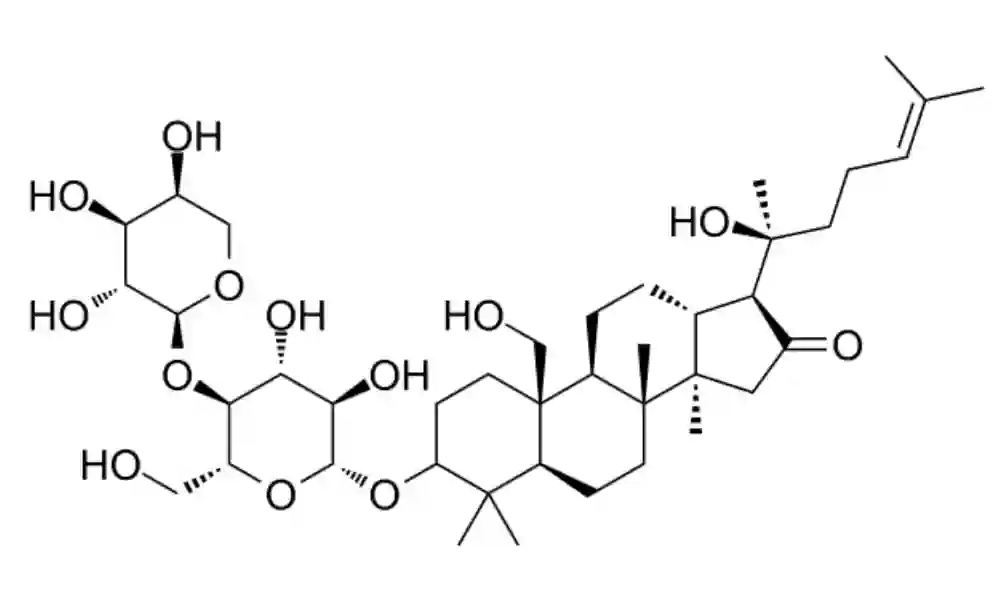
Chemical Structure of Brahmi
2. Diet Modifications
Ayurveda recognizes the importance of a balanced diet in maintaining overall health and well-being. Sugar, processed vegetable oils rich in inflammatory omega-6 fatty acids, artificial sweeteners, and gluten have a negative effect on anxiety, whereas omega-3 fatty acids, turmeric (curcumin), and vitamin D, are thought to have a therapeutic effect. [11]
3. Yoga and meditation
Yoga and meditation are ancient practices that can help calm the mind and reduce the symptoms of anxiety.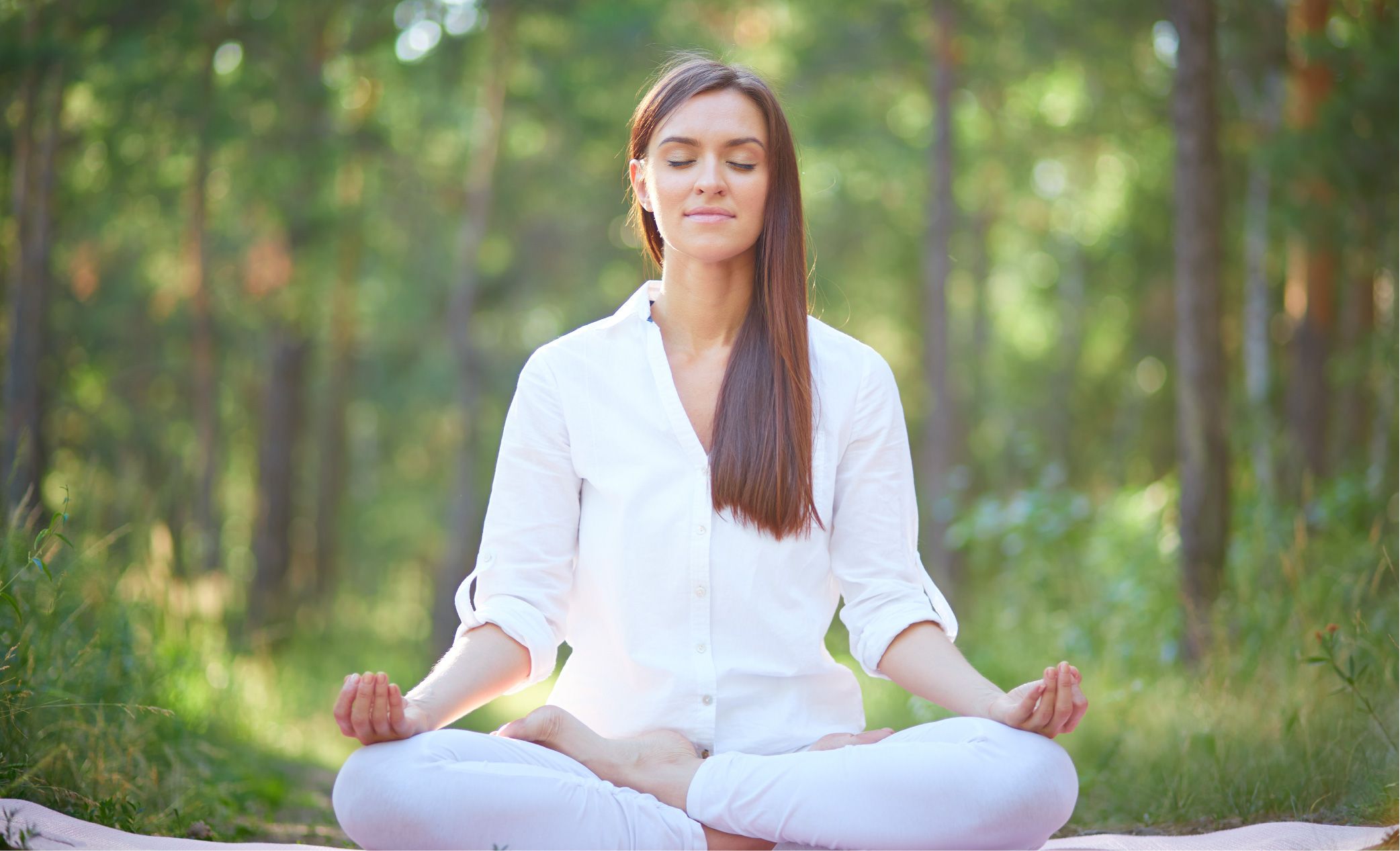 The following yogic practices are beneficial for Anxiety; however, these should be performed only under the guidance of a qualified Yoga therapist. The duration should be decided by the Yoga therapist. [4]
The following yogic practices are beneficial for Anxiety; however, these should be performed only under the guidance of a qualified Yoga therapist. The duration should be decided by the Yoga therapist. [4]
- The practice of Pranayama and meditation along with the practice of Yama and Niyama
- Regular practice of Kunjala and Jala Neti
- Regular practice of Shashankasana, Tadasana, Matsyasana, Mandukasana, Bhujangasana, and Shavasana
4.Abhyanga 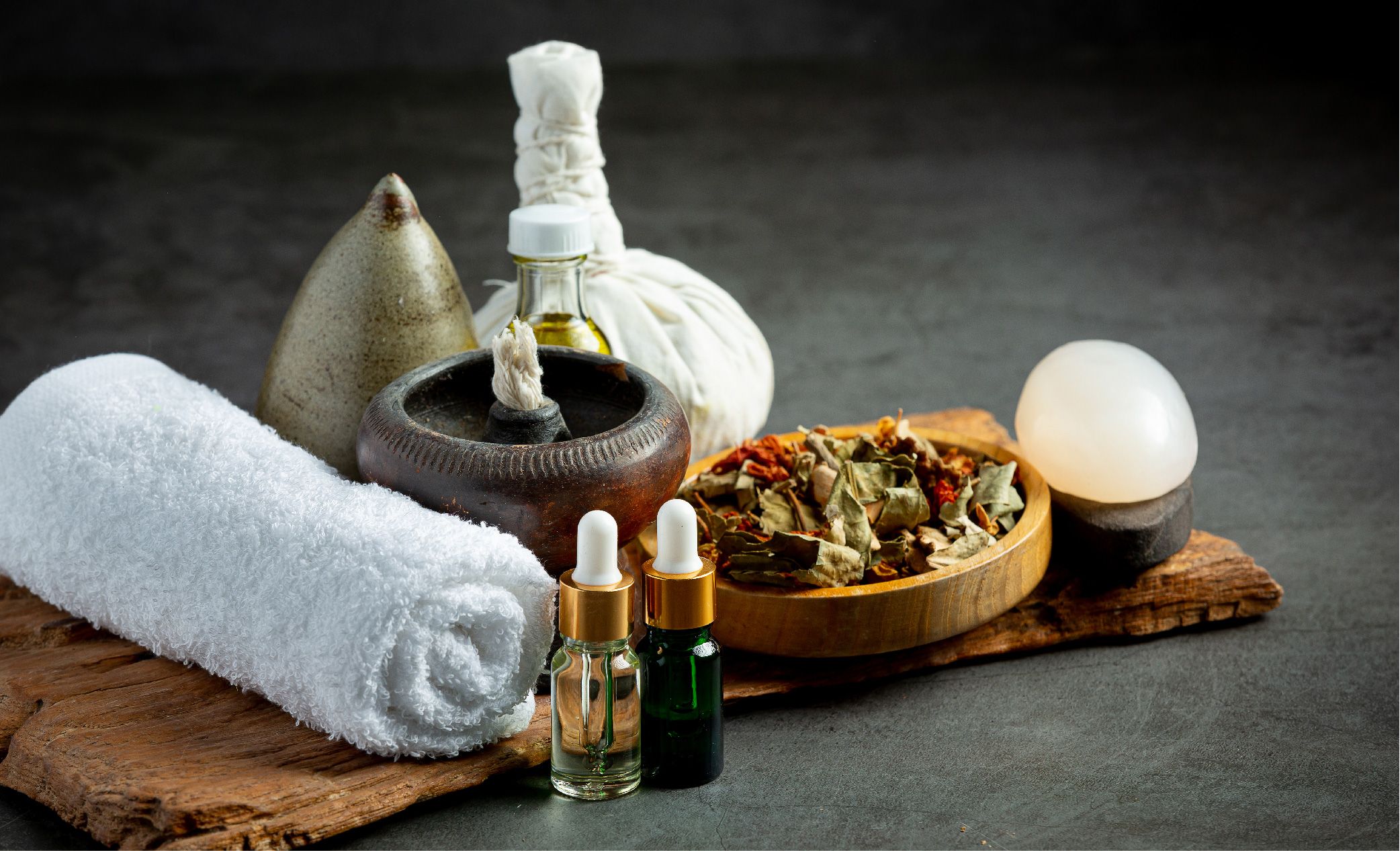
Ayurvedic oil massage, or Abhyanga, helps reduce anxiety symptoms by promoting relaxation and reducing tension in the body.
The oil used in the massage is usually chosen based on the individual’s dosha, and it may include herbs and spices that have calming properties.[4]
In addition to these Ayurvedic treatments, seeking professional medical advice and counselling is essential when dealing with anxiety disorder. A licensed mental health professional can help individuals develop coping skills.
FAQs
1.Are anxiety disorders caused only due to an imbalance in the doshas?
Based on the clinical presentation, Anxiety disorders are generally caused by vitiated Vata-Pitta dosha kopa.
Apart from dosha imbalance, the following factors also play an essential role in the occurrence of this disease.
1.Genetics and hereditary causes
2.Hormonal/biochemical imbalance
3.Personality type
2.What are some common dietary changes recommended by Ayurveda for anxiety disorders?
Omega-3 fatty acids, turmeric (curcumin), and vitamin D, are thought to have a therapeutic effect according to Ayurveda.
Sugar, processed vegetable oils rich in inflammatory omega-6 fatty acids, artificial sweeteners, and gluten have a negative effect on anxiety.
3. How does Ashwagandha help alleviate symptoms of anxiety?
Ashwagandha has antioxidant and anti-inflammatory action. It also modulates the effects of several neurotransmitters in the brain and attenuates the laboratory and clinical indices of stress and anxiety.
4. Are there physical symptoms of anxiety disorder?
Somatic symptoms of an anxiety disorder may include pale skin, sweating, trembling, and pupillary dilatation.
Conclusion
Anxiety disorders can be disruptive to mental health if not treated properly. Further, the assistance of a licensed medical professional is imperative in order to take proper corrective measures depending on the specific anxiety implication.
With the right guidance from Ayurvedic principles and proper modifications in diet, lifestyle, and everyday habits, individuals can achieve optimal mental health to improve their overall well-being.
Disclaimer: This article is from a Health & Wellness and Ayurvedic perspective only.
References
- Herbal Remedies to Treat Anxiety Disorders
- Clinical Methods: The History, Physical, and Laboratory Examinations. 3rd edition. Chapter 202 – Anxiety
- Anxiety Disorders
- Chittodvega(Anxiety neurosis)
- An ayurvedic management protocol in generalized anxiety disorder – A case study
- Genetics of generalized anxiety disorder and related traits
- The Modulatory Role of Dopamine in Anxiety-like Behavior
- Potential clinical applications of Ashwagandha ( Withania somnifera) in medicine and neuropsychiatry
- Efficacy of Brahmi vati in generalised anxiety disorder – Randomized double blind comparative clinical trial
- Nootropic, anxiolytic and CNS-depressant studies on different plant sources of shankhpushpi
- Nutrition as Metabolic Treatment for Anxiety




